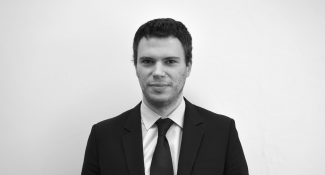After the riots, a new era in Kazakhstan?
In January 2022 Kazakhstan underwent its most serious political crisis since its independence, proclaimed on December 16, 1991. The increase in the price of fuel has set ablaze the west of the country in the grip of socio-economic marginalization, then the southern regions, traditionally more resistant to central power. What actually happened, and what consequences did these troubles have at the national and regional levels?
Between January 1 and 2, 2022, the price of a liter of liquefied petroleum gas (LPG) rose from 60 to 120 tenge (i.e. an increase of 12 to 24 euro cents) in the Mangystau region, an oil province from southwestern Kazakhstan. From January 2, residents of the town of Zhanaozen, which had already been the scene of demonstrations in 2011, gathered to protest against the increase in the price of LPG, the fuel used by 80% of local car drivers. The next day, the protest spread to other cities in Kazakhstan: Aktau, Aktobe, Atyrau, Shymkent, Taraz, and the former capital Almaty, in the south of the country. The cap on the price of LPG at 50 tenge (10 euro cents) per liter for a period of six months, announced on January 4 by a government commission specially dispatched to Aktau, is not enough to put to an end the protest momentum, which gets more and more political.
The demonstrators peacefully demand the restoration of the 1993 Constitution and the definitive departure of former President Nursultan Nazarbayev (who then continues to pull the strings at the head of the state), before the situation degenerates. Indeed, scenes of riots and fights between citizens and police forces in several cities of Kazakhstan, and particularly in Almaty, shock public opinion and paralyze the authorities of a country renowned for its great stability since 1991.
[...]
“Elbasy [the Father of the Nation, honorary title of Nursultan Nazarbayev] favored the emergence in the country of a caste of wealthy people, well beyond international standards”. This declaration made on January 11, 2022, by President Tokayev in the presence of his newly appointed government would have been inconceivable even a week earlier, when he took advantage of the ongoing crisis to rule the head of the Security Council. Serving since 2018 as the decision-making body in the field of national security, defense as well as foreign policy, the Security Council was in fact the real center of Kazakhstani power, which Nazarbayev continued to lead, despite his formal resignation from the presidency of the Republic in March 2019. By taking control of this structure, Tokayev finally put into effect the political transition initiated by Nazarbayev three years earlier.
Full article on GIS Asia.

Media:

Share





